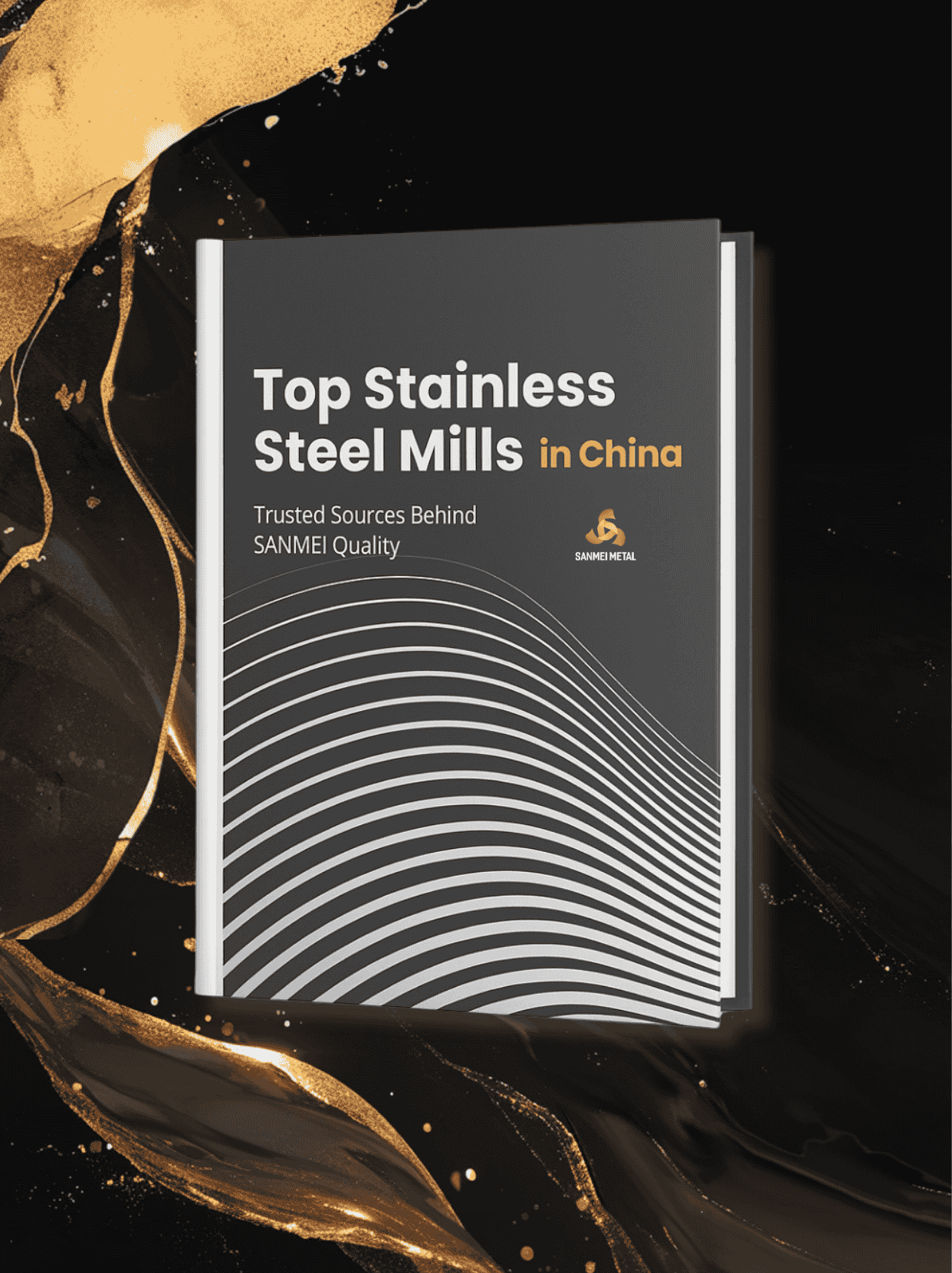
Get Your FREE Access: China’s #1 Steel Mill Dossier
Buyer-Oriented: Match mills by grade/finish/width-thickness/application
BAOWUTsingshanLiscoTisco


General Properties
420J2 has a chemical composition that includes carbon (C: 0.26-0.40%), chromium (Cr: 12.0-14.0%), and other elements in smaller amounts. It is magnetic and can be hardened to a Rockwell hardness of HRc52-55 after heat treatment
Applications
420J2 stainless steel is used in applications such as diving knives, common kitchen knives, surgical instruments, hand tools, pump shafts, swords, and daggers due to its hardness and durability
Standard
420J2 aligns with international standards such as JIS G4303 for stainless steel bars, JIS G4304 for hot-rolled stainless steel plate, sheet, and strip, and JIS G4305 for cold-rolled stainless steel plate, sheet, and strip.
Corrosion Resistance:
420J2 exhibits good corrosion resistance in mild atmospheres and domestic environments. It is also resistant to diluted nitric acid, carbonic acid, ammonia, crude oil, detergent solutions, vinegar, food acids, several petroleum products, and steam.
Heat Resistance:
While 420J2 has good resistance to corrosion at room temperature, its performance in high-temperature environments is limited due to a loss of ductility at sub-zero temperatures and a loss of strength at elevated temperatures due to over-tempering.
Machinability:
420J2 is relatively easy to machine in the annealed condition, but its machinability decreases once hardened.
Welding:
Welding is possible for 420J2, but it is recommended to avoid welding in annealed, hardened, or tempered conditions to prevent brittleness and cold cracking. Pre-heating and inter-pass temperature control during welding, followed by very slow cooling and post-weld annealing, are good measures to prevent cracking.
Hot Working:
Hot working can improve the toughness and wear resistance of 420J2 stainless steel.
Cold Working:
Cold working increases the hardness and strength of 420J2 while also improving its surface quality and dimensional accuracy.
Annealing:
Annealing is performed by heating uniformly to 840-900°C (1544-1652°F) and holding until the temperature is uniform throughout the section. Soaking and cooling are required.
Tempering:
Tempering is used to reduce brittleness and internal stresses after hardening.
Hardening:
420J2 can be hardened by heating to 950-1020°C (1742-1868°F) and holding until the temperature is uniform throughout the section, followed by quenching in oil or air cooling.
Property | Value |
Density | 7.75 g/cm³ |
Modulus of Elasticity | 29 x 10^6 psi |
Coefficient of Thermal Expansion (32-212°F) | 10.4 x 10^-6 in/in°F |
Thermal Conductivity | 24.9 W/m·K |
Specific Heat | 0.11 Btu/lb·°F |
Electrical Resistivity | 56 μΩ·m |
Property | Value |
Yield Strength, min. | 540 N/mm² |
Tensile Strength, min. | 740 N/mm² |
Elongation, min. (%) | 12 |
Hardness, max. (HRC) | 55 |
Element | C | Si | Mn | P | S | Cr | Ni |
% | 0.26-0.40 | ≤1.00 | ≤1.00 | ≤0.040 | ≤0.030 | 12.00-14.00 | ≤0.60 |

| Type | Width (mm) | Weight (MT) | Thickness (mm) | ||||
| 420J2 Coil | 1000, 1219, 1240, 1500 or Customized | 3-10 | 0.15-3.0 | ||||

| Type | Width (mm) | Length (mm) | Thickness (mm) | |||||||||
| 420J2 Sheets | 1000, 1219, 1240, 1500 or Customized | 2000, 2438, 2500, 3000, 3048 | 0.3-3.0 | |||||||||
We are committed to giving our customers the best and highest quality service to ensure our customers' satisfaction.









Certified by prestigious institutions and committed to adhering to international standards in every aspect.




Customer feedback is the most authentic reflection of a company's quality.
View more technical references from Sanmei Metal regarding stainless steel coils and stainless steel sheets.
Headquarters:
Creating Center, No.142, Yuhe Road, Lecong Town, Shunde District, Foshan City, Guangdong Province, China. 528315
Factory: Liyuan Logistics City, Chencun Town, Shunde District, Foshan City, Guangdong Province, China. 528313
Australia Local Support Base: (Yatala, QLD) – Coming 2026